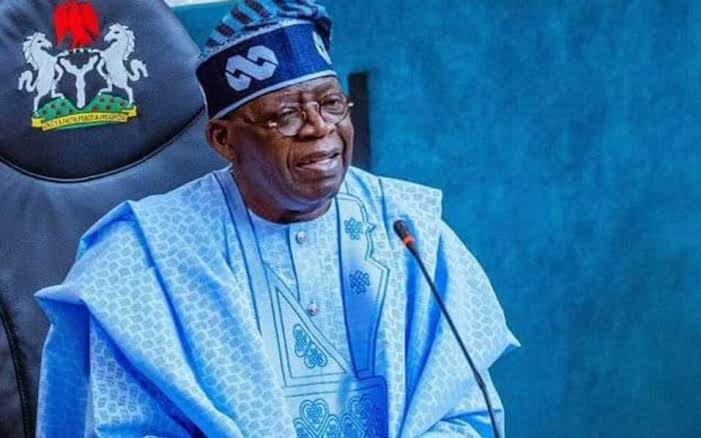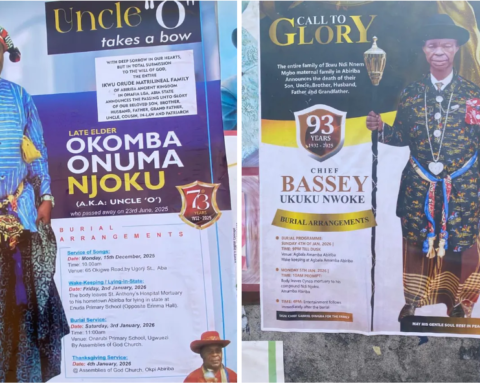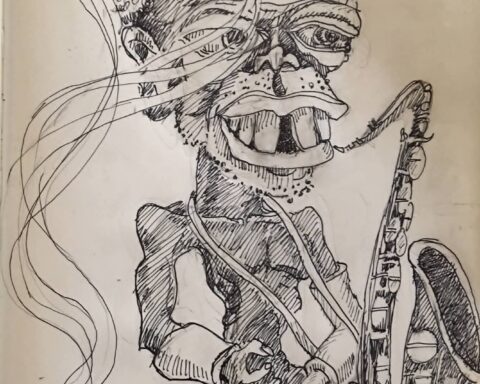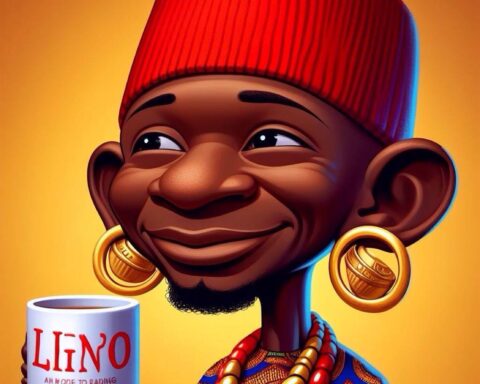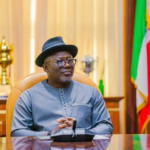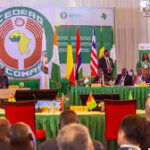By Okagbue Aduba
I was recently reminded of Ernst Frankel’s The Dual State: A Contribution to the Theory of Dictatorship, a 1941 book written in Nazi Germany. The book was mostly about the dual nature of the legal system under the Third Reich and analysis of how there existed a Prerogative State and a Normative State, in which the former operated its own draconian and arbitrary form of justice while for a part of society, the Normative State, everything ran as normal with expected trappings of regular judicial and economic systems. Both systems appeared to run side by side in the nationalist Germany of the 1930s and early 1940s, the author seems to theorize.
The introduction to this work notes, inter alia, that “the national socialist state is remarkable not only for its supreme arbitrary powers but also for the way in which it has succeeded in combining arbitrary powers with a capitalistic economic organization.”
Thus while the German SS terrorized the opposition, aspects of life, the economy, the bureaucracy still functioned as if normal. The relationship between the constituents retained a semblance of normalcy and kept the society functional.
Just as I think about this, my musings have also taken me through Nigerian society, and I keep wondering how Frankel’s theory figures here. Before someone says, talking about Hitler is taking it too far, I beg to clarify that this is not about Hitler nor the extremism of the 1930s Germany. It is about leadership and society. It is about nation building and man’s insatiable capacity to do damage If unchecked. Nigeria, though a democracy has never really been democratic, our leaders have always sought to keep absolute power and be authoritarian.
Nigeria is like the Dual State but where the prerogative state has almost completely eroded the normative state. Nigeria is a nation of lawless leaders, not only those in government but leaders of every fabric. Nigeria is a nation where the rules only work when equals fight. Once the balance of social power tilts, the legal system collapses in that direction. If your neighbor is richer, he gets away with taking from you even when you seek legal redress. The system favours him. The police favour him. The courts favour him. Your other neighbors favour him. You, the victim, soon become the villain. A nation can only survive for so long on such precarious foundation which is why it is all crumbling.
Certainty of outcome, the predictability of a legal system that guarantees the rule of law is the ultimate basis of decent societies. That certainty does not require that one wins all the time but guarantees a fair shake to all. Equity ensures that we all win even when losing; that our society is the better for it. That the rot pervading the social fabric of Nigeria today would not get out of control. Our lexicon is replete with the negative; words such as bandits, kidnappers and terrorists abound in daily reels. We have become inured to things hitherto unknown to Nigeria yet we have a government and we have all sorts of alphabet agencies tasked with security. Sometimes the agencies are most efficient in terrorizing the less privileged. Most times we squander enormously stupendous amounts in servicing the vagaries of government operators. Legislators, governors and all levels of government are over compensated while the rest of society barely make ends meet. It is disturbing to read stories about legislators receiving ‘salah bonus’ of several millions. It is disturbing to read about purchases and repurchase of sport utility vehicles at costs of over 160, 000 US dollars each for legislators in a state where constituents are suffering. It is ridiculous that Nigerian legislators are among the highest paid in the world, despite the hardship in their constituencies. It is ridiculous to know that very few National Assembly members live in their constituencies. Some only engage when the President visits or to campaign and bribe voters and officials during the next election.
Ironically, Nigerians remain stoic. They retain an uncanny sense of humour in all the adversity. You find all sorts of TikTok videos, exchanged in social media, making light of the hunger and hardship which pervade the land. Amidst all that is also the foolishness of celebrating mediocrity, only sometimes mixed with serious stuff. The common thread, however, is a clear criticism of the president. Tinubu is vilified in many posts as the harbinger of the hardship. Some would stop short of calling him a dictator. What most forget is that Tinubu is ours, our president whatever he is. He was chosen. He is ours because we put him in power, controversial or not. He is backed by the National Assembly and he is backed by the courts, two other branches of government that ought to provide checks on the president.
As I told a friend in an exchange, recently, every society gets the leadership it deserves. To Nigeria, it is the Buharis or Tinubus of recent. It does not matter what many critics think, bad leaders or even dictators are such because they have supporters willing to act on their commands. Such leaders do not just materialize, they are chosen. These leaders are chosen by a large swath of society. They are made by the very people who end up suffering. History is full of unlearned lessons, as in the example of the dual state earlier, even Hitler was popularly elected by Germans but unlike our situation German industrial base and economy developed on the side semi-insulated from the tyranny. Aspects of the legal system too were untampered with but Nigerians are a unique lot; ours is different. While not completely totalitarian, our system is still authoritarian. Our brand of nationalism is fractured and our democracy, a pretense.
Whose fault is it then that Nigeria is failing? From the military era to present, we have always chosen our leaders with immediate gratification in mind, ignoring the consequences of the future. All Nigeria’s coup plot leaders, including Abacha, were welcomed by the people and supported by the elite until they began to bite. The much-vilified President Buhari was once the beautiful bride who rode to power on a wave of public demand for his anti-corruption crusade. He ended up failing woefully. Tinubu too, came to power on a combination of social disunity and basal ethnic nationalism. Why are people complaining? Perhaps, he is the leader the country deserves, a wrath of the gods, a nudge to learn and clean up our collective act.
Tinubu is not the lecturer demanding payment from students for grades. Tinubu is not the electoral officer who takes bribe to change voting records. Tinubu is not the judge who delivers outrageous rulings from the bench. Tinubu is not the civil servant or customs officer collecting money before he does his job. Tinubu is not the public utility companies refusing to install electric meters for customers after collecting payment so they can continue estimated billing. Tinubu is not the businessman who knowingly manufactures fake drugs, drinks and food products to sell to fellow Nigerians. Tinubu is not the double-speaking legislators who cannot carry out legitimate committee assignments with transparency nor the ones receiving “salah bonus’ in questionable circumstances.
Tinubu is not a saint, he is a Nigerian. His failings, including his election, come from the failings of our society. To fix that requires a fix of the society or we shall return to these same complaints years after Tinubu.
The question is, are we capable of fixing it?
Follow us on all social media platforms @dailyquery for news and analyses around the globe.
